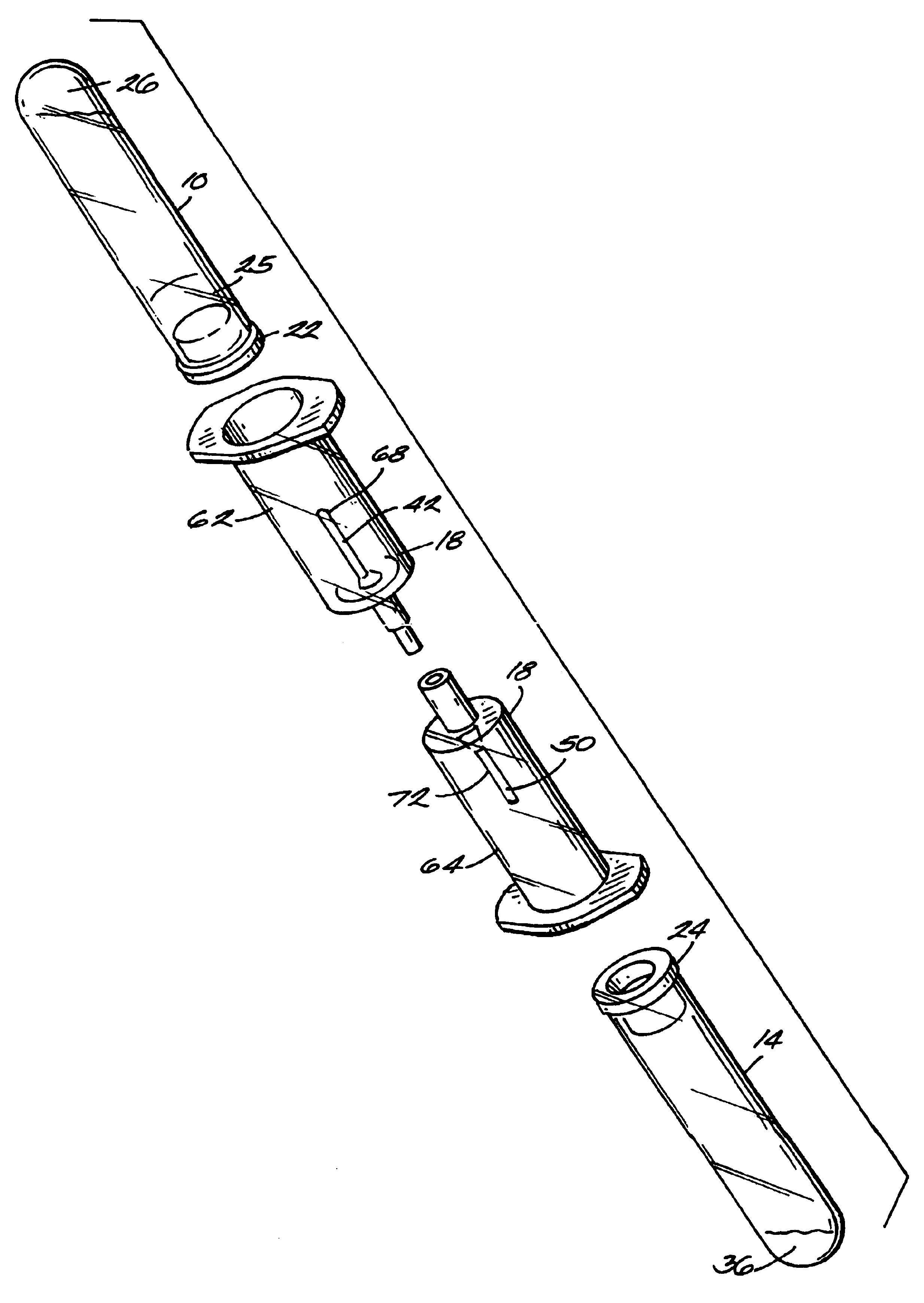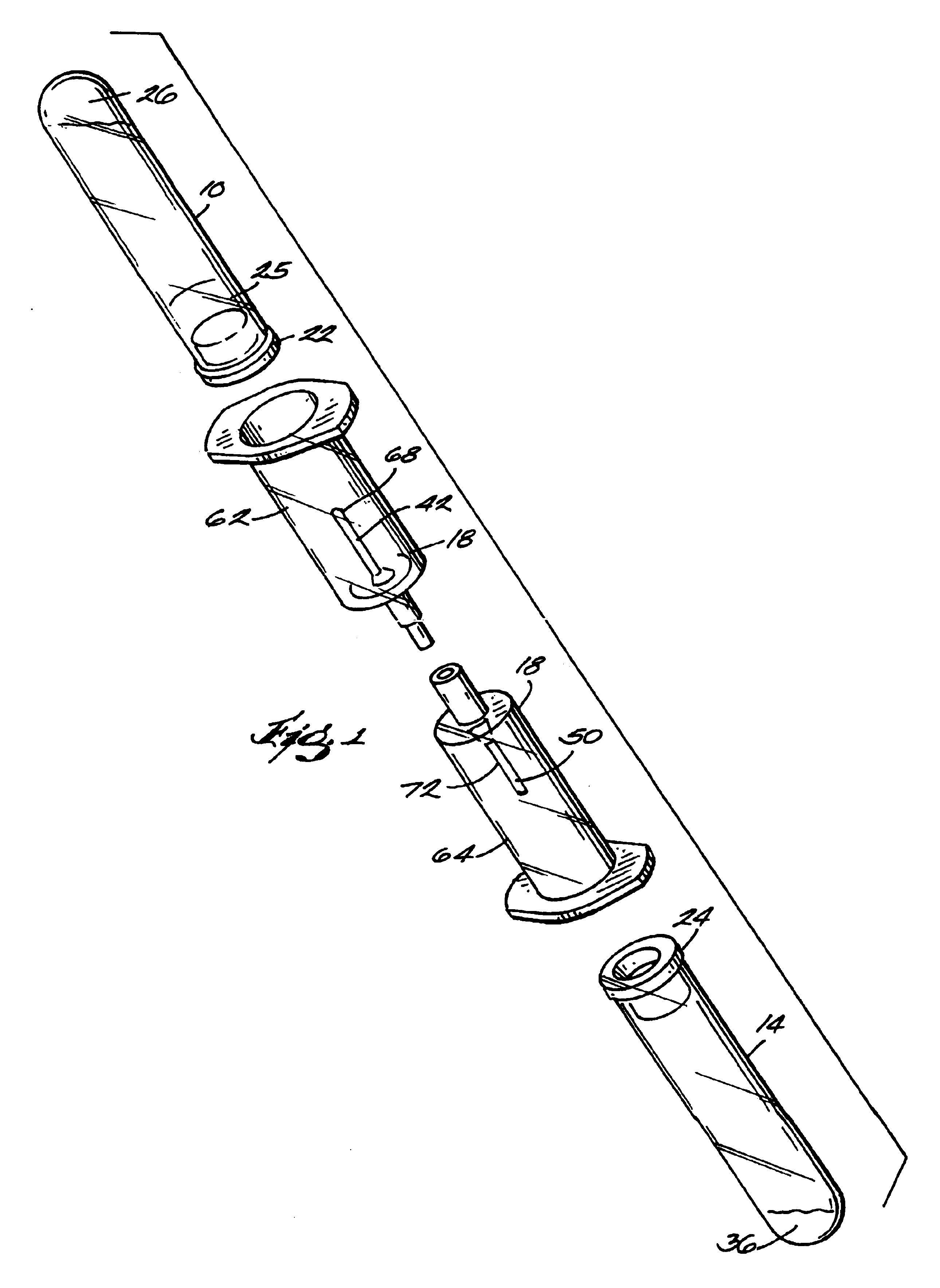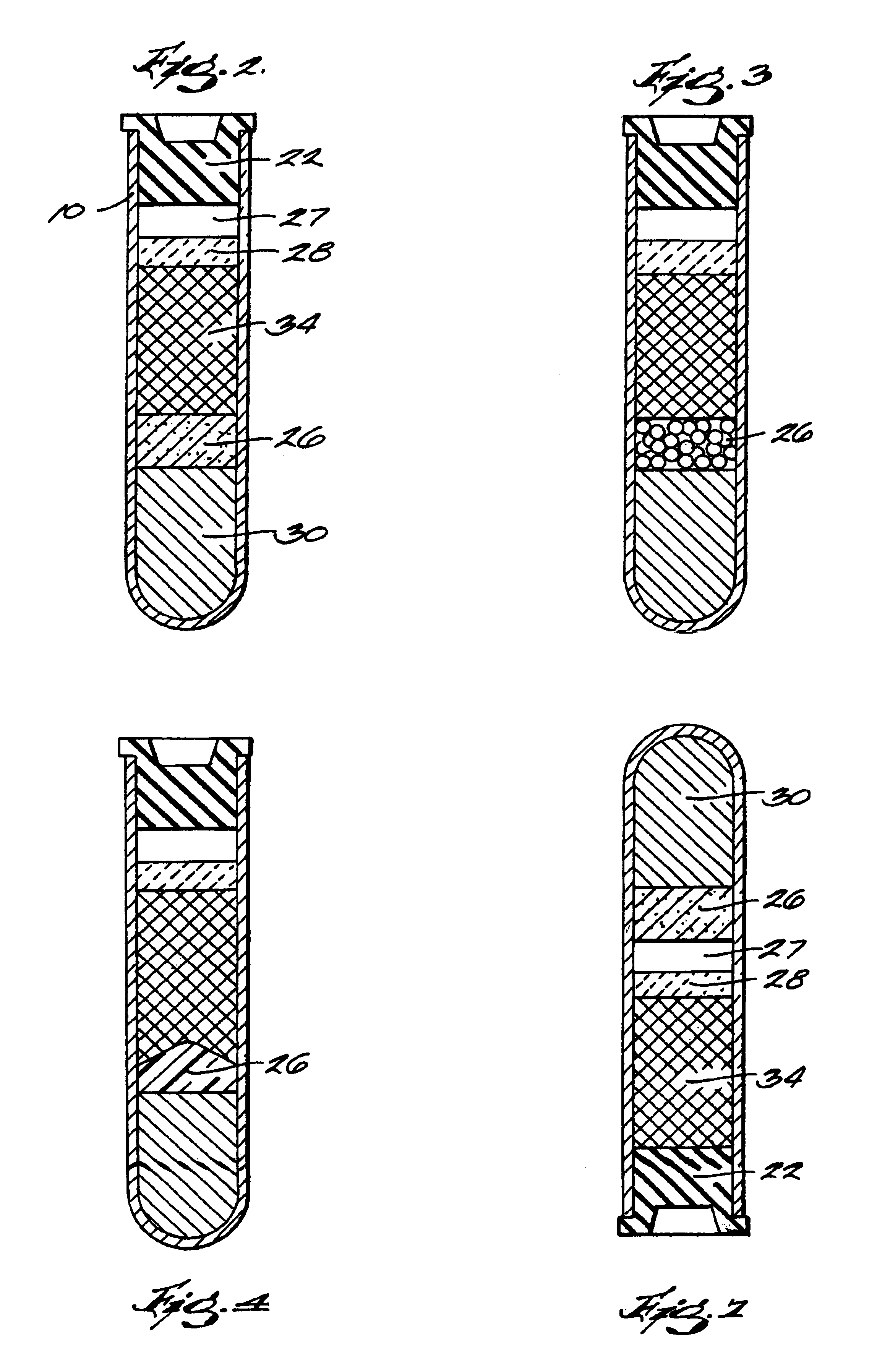Systems and methods for preparing autologous fibrin glue
a technology of fibrin glue and autologous, which is applied in the field of systems and methods for preparing autologous fibrin glue, can solve the problems of no “ready to use” kit available on the market, serious risks for the receiver of fibrin glue, and possible viral contamination
- Summary
- Abstract
- Description
- Claims
- Application Information
AI Technical Summary
Benefits of technology
Problems solved by technology
Method used
Image
Examples
example 1
[0049]In a 5 ml glass container for antibiotics, being sealable under vacuum, made of transparent white glass, inert and 1 mm thick were introduced 100 mg of tranexamic acid, acting as fibrin stabilizer. The synthetic tranexamic acid, being more than 98% pure, is put on the market by the American company Sigma Inc. Separately, a 1M CaCl2 solution was prepared, by weighing on a precision balance 147.0 g of CaCl2.2H2O (>99%pure), from the same American company Sigma Inc.
[0050]This salt was dissolved in exactly 1 liter of ultrapure nonpyrogenic distilled water, for a few minutes at room temperature, under frequent stirring. By using a precision piston dispenser, having a dispensing precision of ±5% (Eppendorf like), 80 μL of the activator solution were introduced in the glass container. In this step, at the same time as the dispensing, a filtering was carried out by using a 0.22μm Millpore sterilizing filter, while carefully preventing possible contamination from powders or filaments o...
example 2
[0051]10 ml of venous blood were drawn from a patient according to the provisions of the qualitative standards for clinical analysis, e.g. by using VACUTAINER® sterile test-tubes by Becton-Dickinson, added with a 0.106 M sodium citrate solution. For this purpose also test-tubes added with disodium or dipotassium ethylenediaminetetraacetate can be used.
[0052]The sample was carefully kept sterile during the blood drawing. Finally, the sample was gently shaken for wholly mixing the components, thereby ensuring the anticoagulating action of sodium citrate. The test-tube was then introduced in a suitable centrifuge, while carefully balancing the rotor weight in order to prevent the same centrifuge to be damaged. Once the lid is sealed, the sample was centrifuged at 3500 rpm for 15 minutes, thereby separating the red cells (being thicker) from the citrated plasma (supernatant). In this case the plasma yield, mainly depending upon the characteristics of the donor blood, was as high as 55%....
example 3
[0053]About 18 ml of venous blood were drawn from a normotype 49 years-old patient by using 5 ml sodium citrate VACUTAINER® test-tubes by Becton-Dickinson, taking care to shake gently just after the drawing of the sample. The so taken blood was immediately subjected to centrifugation (15 min. at 2500 rpm) to separate the plasma. The plasma (12 ml) was carefully transferred into two 10 ml test-tubes, containing 120 μL of CaCl2 (10 g / 100 ml) each, which had been prepared as described in Example 1, but without using tranexamic acid. After mixing the plasma with the activator, the test-tubes were centrifuged for 30 min. at 3000 rpm, finally obtaining two massive fibrin samples which were inserted, with all sterility precautions, within 2-3 hours from preparation, in the large vesicular mandibular cavity resulting from extraction of impacted left canine and right second incisor, as well as from abscission of the cyst present in the central area of the incisor teeth. Finally the gingival ...
PUM
| Property | Measurement | Unit |
|---|---|---|
| Pressure | aaaaa | aaaaa |
| Viscosity | aaaaa | aaaaa |
| Density | aaaaa | aaaaa |
Abstract
Description
Claims
Application Information
 Login to View More
Login to View More - R&D
- Intellectual Property
- Life Sciences
- Materials
- Tech Scout
- Unparalleled Data Quality
- Higher Quality Content
- 60% Fewer Hallucinations
Browse by: Latest US Patents, China's latest patents, Technical Efficacy Thesaurus, Application Domain, Technology Topic, Popular Technical Reports.
© 2025 PatSnap. All rights reserved.Legal|Privacy policy|Modern Slavery Act Transparency Statement|Sitemap|About US| Contact US: help@patsnap.com



